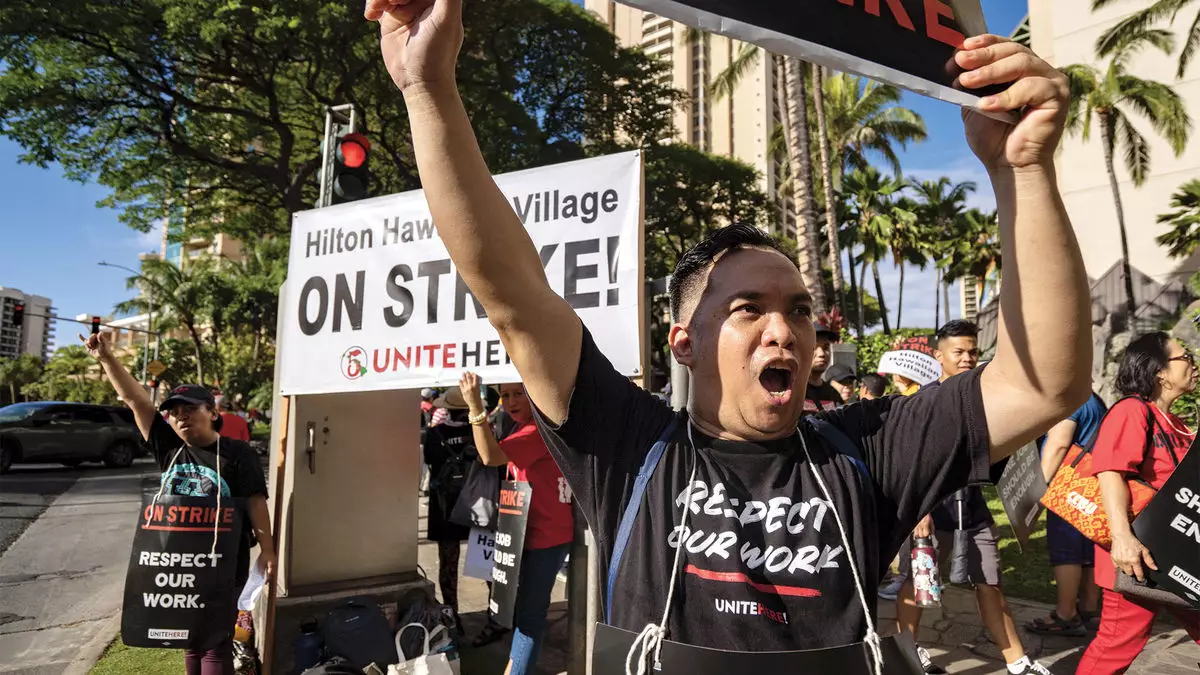The labor unrest at the Hilton Hawaiian Village Waikiki Beach Resort has escalated into a significant strike involving over 1,800 hotel employees. Spanning into its third week, this protest brings together a diverse group of workers—housekeepers, maintenance crews, front desk personnel, and food and beverage staff. The core of their dissatisfaction stems from prolonged contract negotiations that have not yielded satisfactory outcomes, particularly concerning wages that fail to keep pace with rising inflation and living costs.
Workers represented by Unite HERE Local 5 have voiced critical issues, which they believe are central to their rights and well-being in the workplace. These concerns include not only financial remuneration but also the need for appropriate staffing levels and fair distribution of workloads. Additionally, they are calling for the restoration of services and amenities that were diminished during the COVID-19 pandemic—a period when many hospitality workers faced unprecedented challenges, yet their contributions were not recognized adequately.
The strike has not only affected the workers but has also caused disruptions in the hotel’s services, which has led to guest dissatisfaction. Some visitors have reported that they were unaware of the ongoing strike prior to their arrival, prompting concerns about alterations to services and delays that they did not anticipate. The hotel has made attempts to address these grievances, asserting that guest comfort and well-being remain top priorities despite the labor dispute.
A spokesperson for Hilton has emphasized the hotel’s commitment to its guests, stating that they are working closely with each visitor to mitigate any inconveniences they might experience during their stay. This approach seeks to maintain the hotel’s reputation for exceptional hospitality while balancing the demands of the striking employees. However, the ambiguity surrounding how long the strike might prolong adds an additional layer of uncertainty for both guests and the hotel’s management.
It remains to be seen how this situation will develop in the coming weeks. The striking workers have declared their intention to continue their protest until a fair contract is negotiated—one that reflects not just the employees’ labor conditions but also recognizes their significant role in the overall hospitality experience. As labor movements gain momentum across various sectors, the outcome of this strike could influence similar initiatives in the hospitality industry, possibly encouraging other workers to advocate for their rights.
In summation, the ongoing strike at the Hilton Hawaiian Village is not merely a local labor dispute; it exemplifies broader labor rights issues prevailing across the country. As employees stand firm in their demands for fair treatment, wages, and working conditions, the resolution of this strike could serve as a bellwether for the hospitality industry at large, impacting future relations between management and employees in hotels across Hawaii and beyond.


Leave a Reply